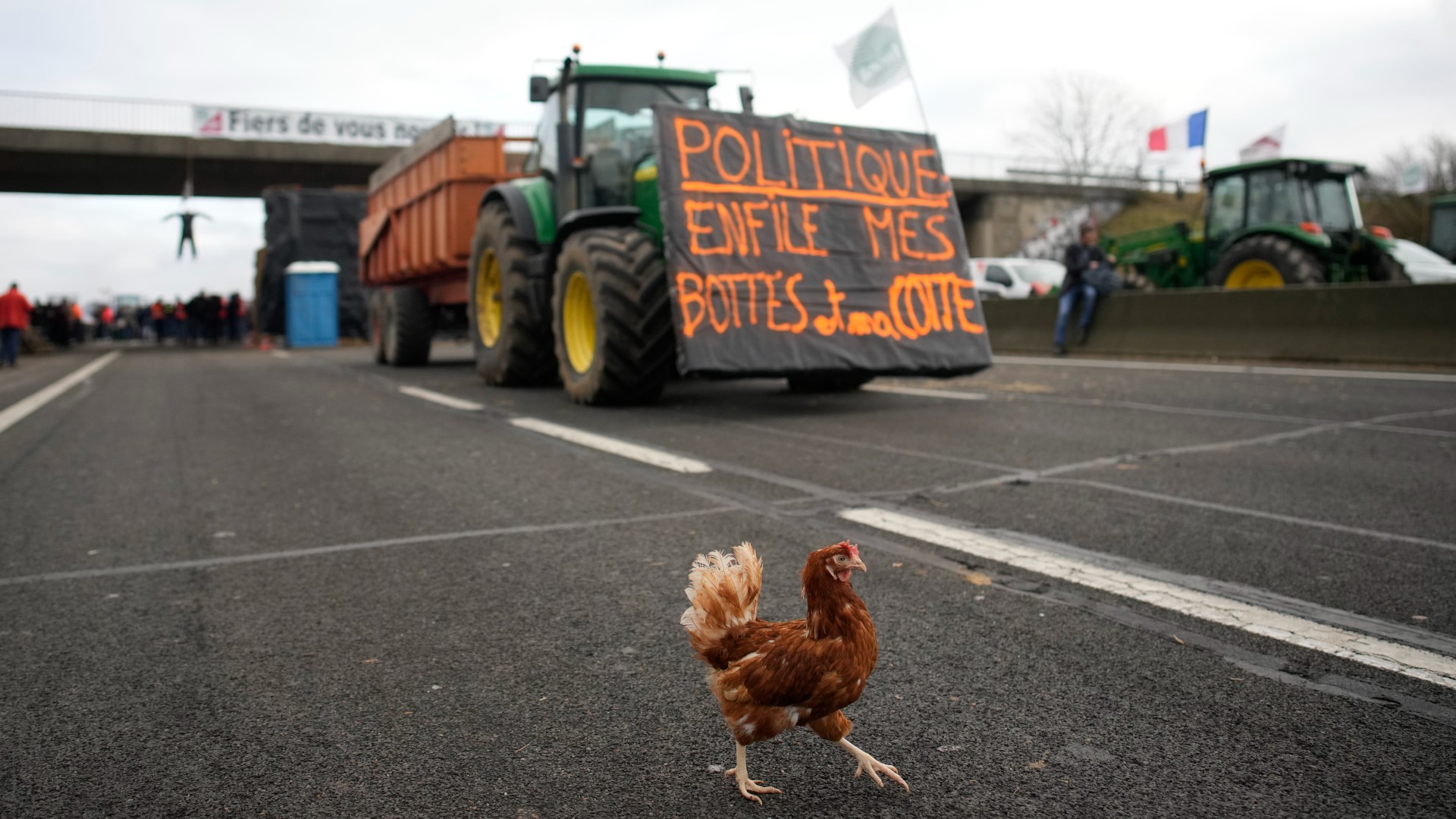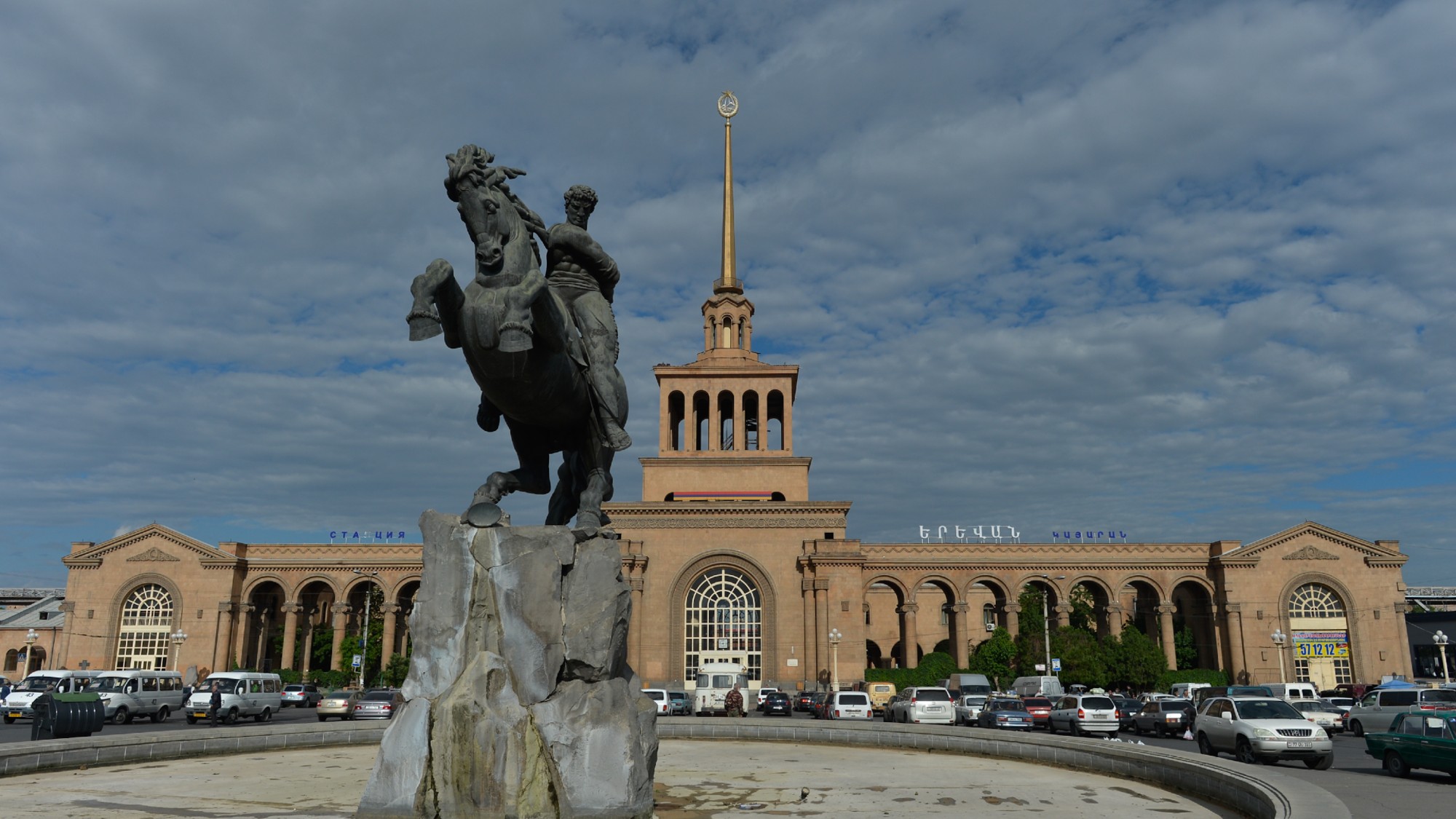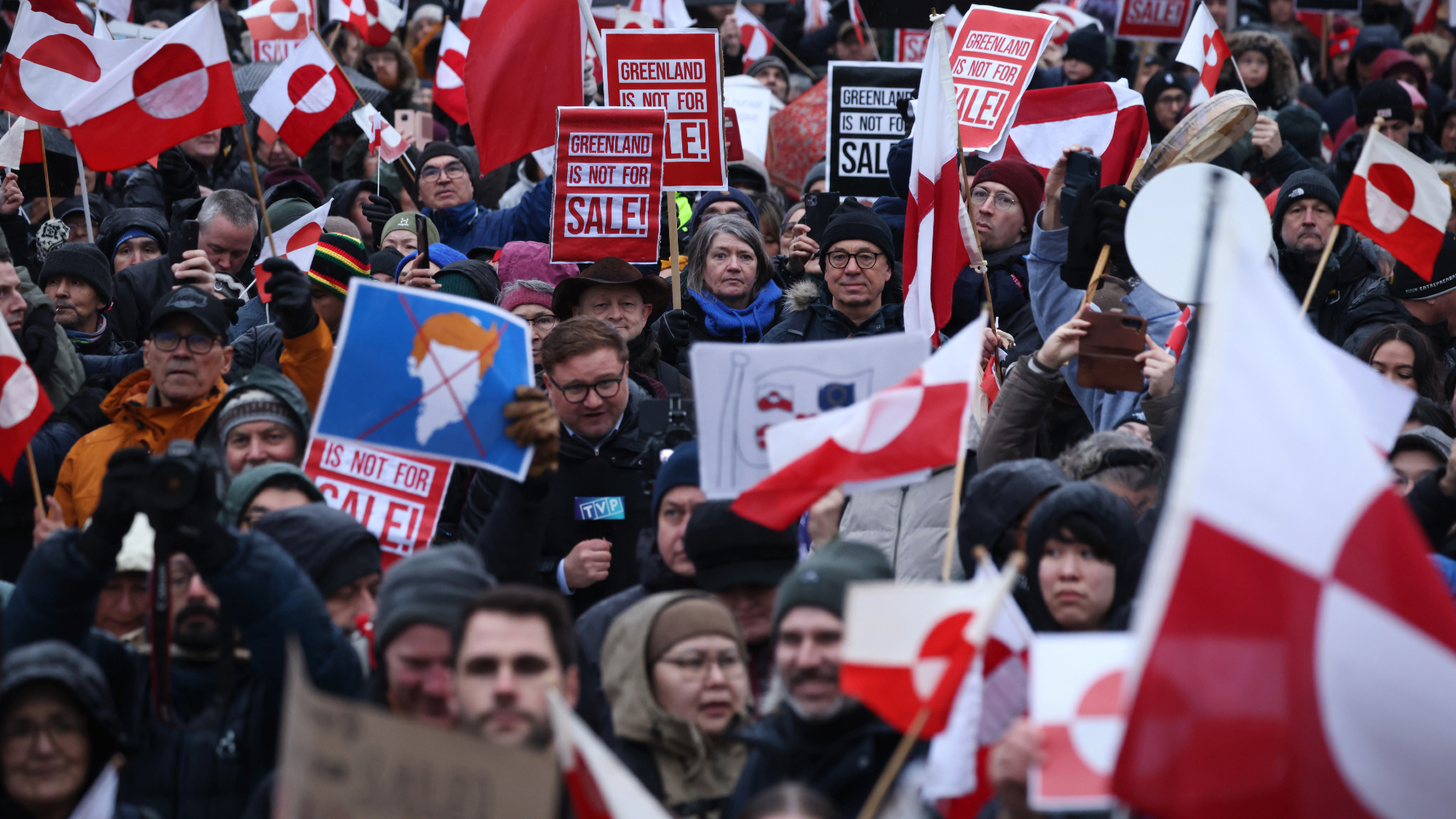Why Europe's farmers are protesting
Grievances over living expenses, taxes and regulations have come to a head


A free daily email with the biggest news stories of the day – and the best features from TheWeek.com
You are now subscribed
Your newsletter sign-up was successful
Thousands of farmers in France took to the streets to protest a variety of alleged grievances against their industry, claiming that the French government has hindered the progress of farming as a livelihood. Farmers near Paris saddled up on their tractors to barricade highways. The move effectively blocked the paths in and out of Paris in what the farmers called a "siege" of the French capital city.
And while the protests in France have started to dissipate, what began on the streets of Paris has now spread across large swaths of the European Union. Mirroring protests from agricultural workers have been seen in Belgium, where a blockade brought the Belgian-Dutch border to a standstill. Farmers in Spain and Italy have also begun a series of tractor blockades, and additional demonstrations have been seen in Poland, Germany, Romania, Greece, Portugal and more.
Why are farmers protesting in Europe and what are the EU governments doing in response?
The Week
Escape your echo chamber. Get the facts behind the news, plus analysis from multiple perspectives.

Sign up for The Week's Free Newsletters
From our morning news briefing to a weekly Good News Newsletter, get the best of The Week delivered directly to your inbox.
From our morning news briefing to a weekly Good News Newsletter, get the best of The Week delivered directly to your inbox.
Why are European farmers protesting?
A variety of issues have plagued farmers throughout the continent. This includes a "burgeoning bureaucracy," as well as "wider issues, including the increasing cost of farm diesel, late payment of EU subsidies or competition from imports," BBC reported.
One of the main grievances revolves around an ongoing revamp of the EU's $59 billion Common Agricultural Policy. The EU describes this initiative as a "partnership between society and agriculture that ensures a stable supply of food, safeguards farmers' income, protects the environment and keeps rural areas vibrant." Part of this revamp, which aims to make the policy more eco-friendly, includes a requirement that 4% of farm land remain unused to help offset lost crops following Russia's invasion of Ukraine.
But farmers have "long argued these measures will make the European agricultural sector less competitive," BBC reported. Combined with still-high inflation across Europe, and farmers "are having to do much more … with less support," Luc Vernet of the think tank Farm Europe told BBC. "They don't see how they can cope any longer."
As a result of the EU's efforts, many farmers have been "unable to cover high costs for energy, fertilizer and transport," Reuters reported. The green policies being pushed by the EU are "seen as contradicting goals to become more self-sufficient in production of food and other essential goods in the light of Russia's invasion of Ukraine." There is also continuing anger over other issues surrounding the industry, including what farmers view as restrictive rules against subsidies.
A free daily email with the biggest news stories of the day – and the best features from TheWeek.com
Ukraine is also at the center of another sore spot for farmers: the aforementioned imports. The EU has "waived quotas and duties [on Ukrainian imports] since Russia's invasion," Reuters reported. The increased competition, the farmers have argued, will cause harm to the European market. Farmers throughout much of Europe have also protested against the conclusion of a trade deal between the EU and Mercosur, a South American trade bloc. All these factors together are causing resentment for "pressuring European prices while not meeting environmental standards imposed on EU farmers," Reuters added.
"The farmers are desperate, really desperate. We've warned the government for years that this would happen," Mark Wulfrancke, the policy officer for Belgian farming union ABS, told The Guardian.
What are European governments doing in response?
The widespread protests seemed to make an impact on regulators almost instantly. The EU's governing body, the European Commission, announced plans on Jan. 31 that would protect the farming economy from some of the changes implemented by the Common Agricultural Policy.
These plans include a proposal to shield farmers from the price effects of Ukrainian imports while also allowing them to use portions of the 4% of land that was due to be left barren. This proposal "provides a first concrete policy response to address farmers' income concerns," the European Commission said.
And while Ukrainian imports have indeed had most of their quotas waived, the European Commission also proposed a cap on some agricultural products as a concession to farmers. This includes limits on Ukrainian sugar, poultry and eggs. This allows the EU to maintain "economic support for [Ukraine], while taking EU farmers' interests and sensitivities fully into account," Trade Commissioner Valdis Dombrovskis said in a statement.
In response to some of these concessions, the leaders of France's farming unions announced that they were ending most of their strikes and lifting their roadblocks. But protests across most other nations in the EU are continuing to expand.
Justin Klawans has worked as a staff writer at The Week since 2022. He began his career covering local news before joining Newsweek as a breaking news reporter, where he wrote about politics, national and global affairs, business, crime, sports, film, television and other news. Justin has also freelanced for outlets including Collider and United Press International.
-
 Democrats push for ICE accountability
Democrats push for ICE accountabilityFeature U.S. citizens shot and violently detained by immigration agents testify at Capitol Hill hearing
-
 The price of sporting glory
The price of sporting gloryFeature The Milan-Cortina Winter Olympics kicked off this week. Will Italy regret playing host?
-
 Fulton County: A dress rehearsal for election theft?
Fulton County: A dress rehearsal for election theft?Feature Director of National Intelligence Tulsi Gabbard is Trump's de facto ‘voter fraud’ czar
-
 ‘The West needs people’
‘The West needs people’Instant Opinion Opinion, comment and editorials of the day
-
 ‘Various international actors hope to influence the result for their own benefit’
‘Various international actors hope to influence the result for their own benefit’Instant Opinion Opinion, comment and editorials of the day
-
 How ‘Manchesterism’ could change the UK
How ‘Manchesterism’ could change the UKThe Explainer The idea involves shifting a centralized government to more local powers
-
 Is the American era officially over?
Is the American era officially over?Talking Points Trump’s trade wars and Greenland push are alienating old allies
-
 Le Pen back in the dock: the trial that’s shaking France
Le Pen back in the dock: the trial that’s shaking FranceIn the Spotlight Appealing her four-year conviction for embezzlement, the Rassemblement National leader faces an uncertain political future, whatever the result
-
 ‘Dark woke’: what it means and how it might help Democrats
‘Dark woke’: what it means and how it might help DemocratsThe Explainer Some Democrats are embracing crasser rhetoric, respectability be damned
-
 Trump ties Greenland threat to failed Nobel Peace bid
Trump ties Greenland threat to failed Nobel Peace bidSpeed Read ‘I no longer feel an obligation to think purely of Peace,’ Trump said
-
 San Francisco tackles affordability problems with free child care
San Francisco tackles affordability problems with free child careThe Explainer The free child care will be offered to thousands of families in the city
